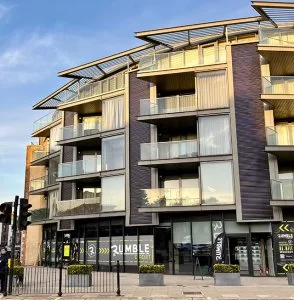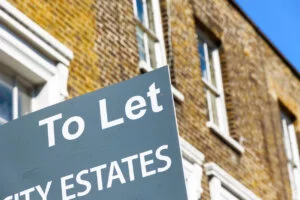Dilapidation Claims
At Osbornes, we have a specialist team of commercial property dispute lawyers who understand the challenges that landlords and tenants face when dealing with repair disputes at the end of a lease.
This page will answer many of your questions including what tenants are responsible for repairing at lease end and what you can do if the parties cannot agree on the costs involved in a dilapidations claim. You will learn more about our property disputes team, including how our experience in this area can help you resolve your dispute without having to go to court.
Acting for clients of all sizes from small business to PLCs, we regularly advise on complex disputes surrounding dilapidations and who is responsible for repairing what at the end of a lease. Our expert property litigation solicitors are accredited members of the Property Litigation Association, a professional body that brings together proven experts in this complex area of law. We offer highly practical, specialist advice to help you settle dilapidations claims as quickly as possible and with beneficial outcomes for your business.
Proactive guidance at the end of a lease
Landlords and tenants of business premises often run into disputes relating to disrepair at the end of a lease. Disagreements arise when the parties cannot agree on what the tenant is responsible for repairing and stripping out of the premises, and who should pay the costs of such works.
In some cases, disputes about repairs or dilapidations can crossover with the ease renewal process. For example, landlords initiating the renewal process or opposing it on specific grounds will need to serve a Section 25 notice, outlining issues such as the condition of property.
While the lease contains the contractual agreement concerning the repair of the property, this is a specialist and technical area of law and the amount claimed can often exceed a year’s worth of rent. Problems can occur if the lease is ambiguous or tenants are not fully aware of the duties and obligations they are subject to.
At Osbornes, we advise landlords and tenants in taking the most appropriate course of action. As a landlord, we help to preserve the full value of your property and be compensated for losses if the tenant fails to comply with their repair obligations. As a tenant, we provide you with timely advice on your potential liabilities, as well the protections you are given by law.
What are dilapidations?
Leases of business property generally contain clauses requiring the tenant to keep the property in good repair, and outlining the tenant’s obligation both during and at the end of the lease. The term ‘dilapidations’ refers to breaches of the repair clauses in the lease. These beaches can arise during the lease term but more commonly are dealt with at the end of the lease. This is sometimes known as ‘terminal dilapidations.’
When disputes arise, it’s usually because the parties cannot agree on what repairs should be done and who is responsible for them. Often, the landlord believes that the tenant has not done enough to make good any disrepair, while the tenant believes he is being asked to do too much.
How does a dilapidations dispute arise?
Generally, a landlord or his surveyors will carry out a dilapidations assessment where they inspect the property at the end of the lease and serve a ‘schedule of dilapidations’ on the tenant. This is a document that lists all the disrepair that need to be made good by the tenant, and any alterations that need to be removed.
If the tenant refuses to make the repairs or pay for the cost of having those works carried out, or if the tenant disputes the schedule, then the landlord may need to take legal action to claim damages. Where the court rules in favour of the landlord, the tenant may be liable to pay:
- The cost of the repairs
- Landlord’s professional fees
- Court costs
- In some circumstances, damages to the landlord arising from any decrease to the value of the property as a result of the tenant’s actions and any loss of rent.
From the tenant’s perspective, it is often in your best interests to negotiate the schedule of dilapidations rather than end up in court. A specialist commercial property dilapidations solicitor with a proven track record can advise on the legal and valuation issues that surround dilapidation claims, and save you a lot of time and money when negotiating the claim’s value.
Can dilapidations disputes lead to forfeiture?
Yes, dilapidations can potentially lead to forfeiture of a commercial lease. Significant breaches of a tenant’s obligations to maintain and repair the leased premises may give the landlord grounds to forfeit the lease.
What is the Dilapidations Protocol?
The Dilapidations Protocol established by the Property Litigation Association sets out a framework for landlords and tenants to follow in dilapidations disputes. There are strict processes and time limits to follow which are designed to encourage an early and amicable settlement of disputes without going to court.
While each claim is different, each party will usually hire a solicitor and specialist surveyor to negotiate the claim. Actions might include:
- Checking the lease and see what each person’s rights and responsibilities are
- Determining what is recoverable in terms of costs and damages
- Preparing and serving a schedule of dilapidations
- Estimating the costs involved in putting the issues right
- Negotiating a settlement, with a sum of money being agreed upon to cover the cost of making good the dilapidations
- Pursuing alternative forms of dispute resolution before taking the matter to court.
How can dilapidation disputes be avoided?
This is a technical area of law and the stakes are high. Prevention is better than cure and good legal advice before you enter into a lease is essential, for both the landlord and tenant. Using clear and precise language in the lease will remove ambiguity over what each party’s repair obligations are and remove any misunderstandings at the end of the lease.
Having a ‘schedule of condition’ drawn upfront can also minimise the likelihood of any disputes. This detailed photographic report is carried out by a surveyor and shows exactly what condition the property is in at the start of the lease, so the tenant’s liability for pre-existing problems is limited.
How can an expert help with dilapidation claims?
At Osbornes, our commercial property dispute lawyers have a proven track record in dilapidations claims. We offer a bespoke service and can work with landlords or tenants, whatever the size of your property or business. We can guide you through the options and the best steps to take to resolve matters quickly with minimal stress.
This is one area of law where swift and proactive action can put you in a better position. It is recommended you speak to a solicitor within the last 6 to 12 months of the lease to start the negotiation process. For landlords, early advice from an expert solicitor can ensure a favourable outcome and minimise the possibility of a delay in re-leasing the property. For tenants, carrying out repair works before the lease ends will generally achieve a much better settlement than leaving the property in a state of disrepair.
For more information, please contact Osbornes’ property litigation specialists today.
Why instruct the team at Osbornes for dilapidations advice?
Dilapidations cases tend to be complex and disputes need skilful handling by an expert solicitor to make sure that everyone’s interests are fully protected in advance of lease expiry. Having advised many businesses, from local restaurants to national blue-chip corporations, we are well placed to offer strategic advice in support of your claim. For more information, please contact the commercial property dilapidations team today.
- 40+ years of experience
- Property Litigation Association accredited
- Top rated by independent directories Chambers, Legal 500 and Spears 500
- Free initial telephone consultations – we are always happy to discuss your situation in confidence
- A proactive and commercial client-first approach
Professional and communicative throughout the process of becoming a Freehold Company and having a share of said freehold. Both Amber and Siroop spoke in plain English and were most efficient and pleasant to deal with.
Amber was fantastic from start to finish. Efficient, clear and professional. Will certainly be calling on her again.
Guy and his team assisted me with a new lease venture and were an absolute pleasure to work with. A professional & knowledgeable team who offered fast and excellent advice. Highly recommend their services
Property News & InsightsVIEW ALL
- 5.3.2025
TOLATA Claim Settled At Mediation
Complex TOLATA claim settled after an extensive mediation We recently settled at mediation, a complex TOLATA case involving a dispute...
Read more - 4.12.2024
Security of Tenure
Security of tenure gives business tenants the right to stay in their property after the lease ends and request a...
Read more - 4.12.2024
Section 25 Notices
A Section 25 notice plays an important role in commercial leases, letting landlords and tenants know what’s next when a...
Read more - 4.12.2024
Section 21 Notices
Guide to section 21 no-fault evictions Evicting tenants is never easy but under the no-fault eviction process, it should be less...
Read more - 18.11.2024
Rent Repayment Orders
Guidance for Rent Repayment Orders (RROs) for Landlords in the UK Rent Repayment Orders (RROs) are legal orders requiring a...
Read more - 13.11.2024
Evicting a Tenant
How to evict a tenant: Guidance for landlords Evicting tenants is rarely straight forward. It is a challenging and complex...
Read more - 16.10.2024
Managing Litigants: Court Powers and Defendant Options
How can the court control a litigant? Most people wish to live out their lives without the need to face...
Read more - 15.10.2024
How do you determine a boundary?
Whether the boundary dispute relates to a rear garden boundary or whether it relates to a driveway, the issue of...
Read more - 14.10.2024
Can You Challenge a Restrictive Covenant?
Challenging a restrictive covenant! Is it obsolete? It is well known that section 84(1) of the Law of Property Act 1925 allows...
Read more - 22.3.2024
The Renters Reform Bill
A Review of the Renters Reform Bill The 2019 Conservative Manifesto made a commitment to end “no fault evictions”. This has...
Read more - 22.3.2024
Client successful in TOLATA proceedings
The case related to proceedings under the Trusts of Land and Appointment of Trustees Act 1996 (“TOLATA”) in respect of joint...
Read more - 23.1.2024
Freehold Service Charge Disputes
Service Charges & the Leasehold and Freehold Reform Bill The Leasehold and Freehold Reform Bill was introduced to Parliament on 27...
Read more - 23.1.2024
Know your Rights (of Way)
If you have a question or concern over a right of way on your property, it is important to seek...
Read more - 23.1.2024
Party Wall Etc Act 1996 v Common Law
The case of Power & Kyson & Shah [2023] EWICA Civ 239 The case of Power & Kyson & Shah [2023] EWICA Civ 239...
Read more - 27.10.2023
The Building Safety Act 2022
Introduction to the Building Safety Act 2022 This much awaited Building Safety Act 2022 was introduced into Parliament on 5th May 2021 as...
Read more - 22.8.2023
Reasonableness of Service Charges
Reasonableness of Service charges under the Landlord and Tenant Act 1985 It is well known that the relevant costs that a...
Read more - 11.5.2023
Overlooking Nuisance Claims
The Supreme Court’s Ruling on Overlooking as Private Nuisance In the case Fearn v Tate (2023) UKSC 4, the UK Supreme...
Read more - 5.2.2023
Japanese Knotweed: Knot in my backyard again!
Huge legal bill after selling home with Japanese knotweed Many will have read the recent case in which a furniture...
Read more - 9.6.2022
TOLATA Claims
What is a TOLATA claim? A TOLATA claim is a legal process under the Trusts of Land and Appointment of...
Read more - 8.6.2022
Right to Light Explained
What is the Right to Light? The right to light is a type of ‘easement’ – a legal right giving property...
Read more - 8.6.2022
The Dangers of Rent-to-Rent
What is Rent-to-Rent? Rent-to-Rent refers to the practice of landlords letting a whole property to a tenant (usually a limited...
Read more - 5.10.2021
Buying a Property with a Party Wall Agreement
Introduction to buying a house with a party wall agreement Buying a property can already be stressful, but finding out...
Read more - 10.8.2021
Beneficial Interest in Property
What does beneficial interest in property mean? A beneficial interest in property gives someone the right to share the benefits...
Read more - 26.6.2021
The Risks Of Buying Properties Off Plan!
Buying Property Off Plan The Daily Mail reported that 300 families a week have to move into shoddy newly built homes....
Read more

























